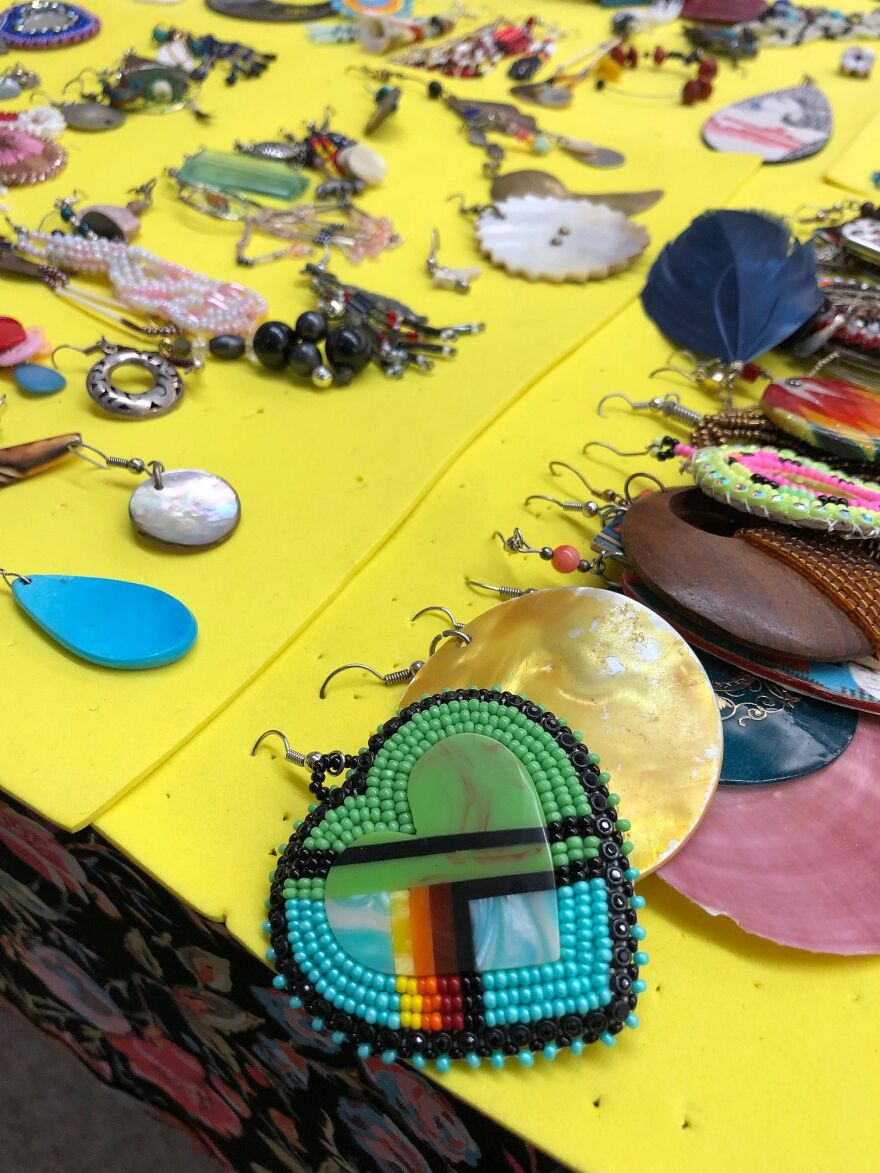A traveling exhibit that’s at Lane Community College this week features single-sided earrings. As KLCC’s Brian Bull reports, the unusual collection represents more than 1100 murdered or missing indigenous women.

A long table displays earrings made of silver, abalone shell, feathers, or beadwork. All signify a Canadian aboriginal woman who was abducted or murdered, either on or off the reservation.
LCC student Mary Mainenti says the “Sing Our Rivers Red” exhibit has brought an upsetting issue to her attention.
“The United States doesn’t have a database of missing or murdered indigenous people like Canada does, and to see those earrings, and what they represent is really moving.”

Lori Tapahonso is LCC’s Native American Student Program coordinator. She says the prevalence of violence against indigenous women – and lack of a database - illustrate the invisibility of these victims.
“Invisibility means that a lot of our pressing issues go unanswered or are low on the spectrum in terms of priority.”

Tapahonso adds that many members of the transgender community have been victims of violence and abduction as well.
Exhibit organizers urge people to lobby lawmakers for a federal database, and to support families with missing loved ones.
Copyright 2019, KLCC.
Copyright 2019 KLCC



